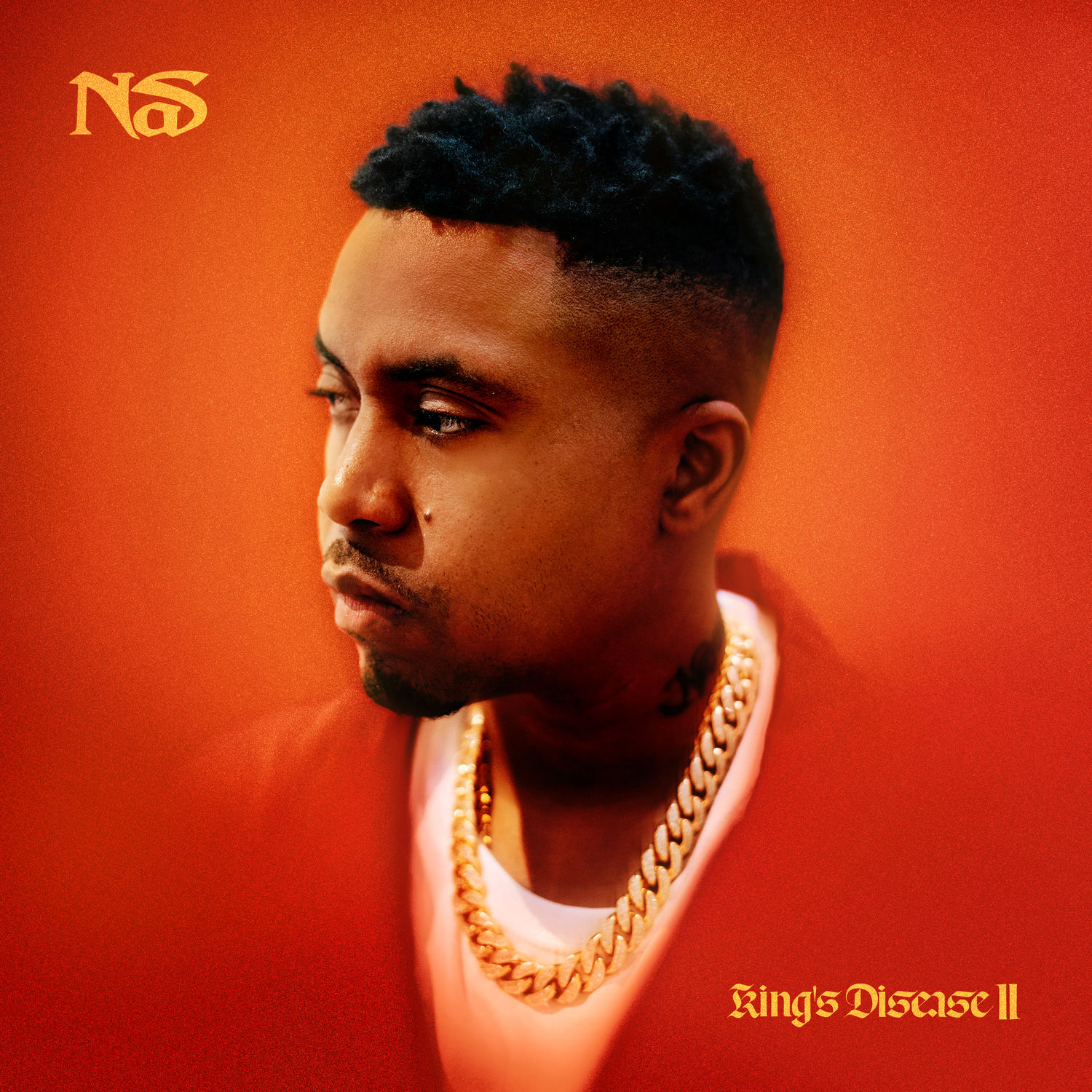Nas has never gone away. Since landing in 1994 with Illmatic and immediately leaving an undeniable imprint on hip hop – one that he’s unavoidably had a foot stuck in since – he’s not ‘retired’, he’s not gone on hiatus, he’s barely even taken departures into side projects. The longest he’s ever taken between releasing albums was six years, from 2012 to 2018, and since then he’s come back rejuvenated, with three in four years. All this means that Nas has never had a moment to sit back and really celebrate what he’s achieved and amassed, so it was a pleasure to hear him doing exactly that on last year’s King’s Disease – and to continue the party on this quick follow up, King’s Disease II.
Although, this time around, he doesn’t get to the fun without first paying some dues. Opening track “The Pressure” is his acknowledgement that he’s always living under a weight of expectation, admitting he’s expected to fend off pretenders and comment on the recent spates of police brutality – though he doesn’t delve much further into either topic. This breeziness is similarly employed on the following “Death Row East”, where attempts to weave himself into the Death Row lore of the 90s, and while it’s a fairly surface-level story, there is a certain amount of skill to the way he tells us his “history lesson”. He then takes a trip back to the hood – in his mind at least – on “40 Side”, where his raps about making millions and winning Grammys while admiring those who are “still thuggin” gets a little muddled.
Boosting off the back of a typically effusive guest verse from Eminem on “EPMD 2”, King’s Disease II gets going in earnest on its fifth track, “Rare”. Here, Corbett and Hit-Boy provide a beat with bright video game synths and a light boom-bap, and it feels like Nas is in his element – maybe not quite in the “rare form” he’s bragging about, but casually looping lines about his lifestyle (reading Nietzsche, rooting for the Mets, wearing Air Maxes) with an audible and infectious smile. Then, just as we’re settling into “Rare”’s swagger, the beat switches to a more dour, determined one, and Nas flips to a gangster flow with “levels of Tarantino”. This cigar-toting, street-war-mongering persona might be less believable were he not served a timely assist by YG and A Boogie wit Da Hoodie on the following “YKTV”, the pair bringing enough fresh scars and war stories to sew up the cracks in Nas’ facade.
When Nas heads back into the purely magisterial, kingly vibe on “Store Run”, a perfectly placed soul sample underneath, the Tony Montana comparisons feel more apt. Nas is no longer struggling on the streets, he’s at the top, on the throne, and when he’s rapping from that perspective it feels much more natural; just see the way he laughs “It’s about rank, you ain’t there yet / Think you gon’ send me to the store? I own the store, man.” This satisfaction flows over into the following “Moments”, a song that’s likely to be a love-it-or-hate-it track, as it finds him getting fairly mushy as he sings about “moments you can’t relive / like taking your first swim / like still being a virgin” over a dreamy, fluttering melody – on a guilty pleasure level, it’s bliss.
King’s Disease II largely stays in this self-satisfied mode for its remainder, and it’s all the more enjoyable for it. With the aid of sugar-voiced Charlie Wilson, “No Phony Love” might be the most sensual song in his catalogue, the rapper frothing over his partner’s body and soul. The following “Brunch On Sundays” flips it to the next morning, a lavish piano playing while Nas celebrates his “favourite day of the week” with bottomless bellinis, endless blunts and “buckets of Dom P” – although there’s girls twerkin on the tables, for some reason, I guess because Nas can’t be seen to be just some happy uncle, he needs to maintain some kind of gangster edge; “it’s the good guy mixed with American Pimp shit,” he explains.
Before he taps out on his 13th album, Nas bestows a couple more hard-earned lessons from his throne, from self-belief (“Count Me In”), clarity in stressful situations (“Composure”), or remaining true to your code (“My Bible”). Each comes packaged luscious production that makes it seem like there’s more meat on the bones of his messages than there really is.
However, by this point, it’s just a long run up to the conclusive “Nas is Good”, his final opportunity to take stock of where he is and how he got there. Returning to the tried and true soul sample, Hit-Boy provides the perfect beat for this final address, and when Nas purely affirms his happiness and satisfaction, we genuinely feel it. Intriguingly, in a game where we’re consistently told that remaining hungry is a necessity, the most enjoyable moments of King’s Disease II come when Nas is simply stating his satisfaction. If there was any time to ‘retire’, this might be it – but you just know that isn’t an option.

